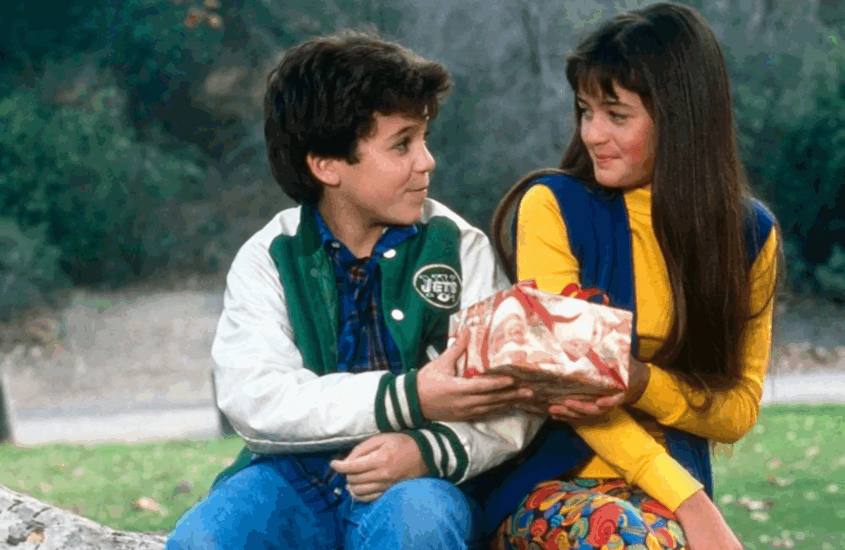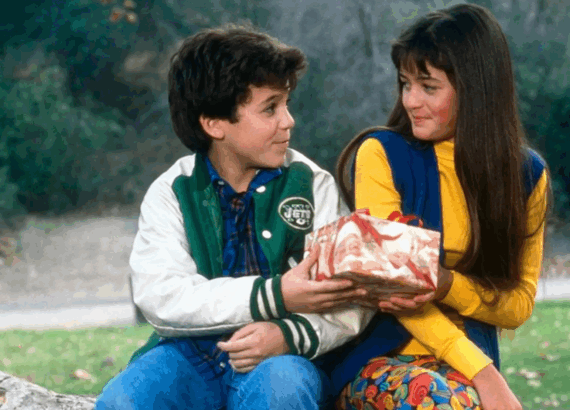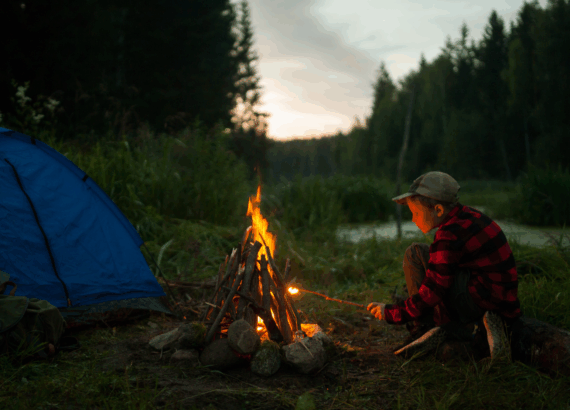The Lost Art of Growing Up Slowly
AmericanMom Team | ©ABC/Courtesy Everett Collection
©ABC/Courtesy Everett CollectionA child’s mind is like wet cement; whatever falls on it makes an impression.
There’s a reason we call them the wonder years. That fragile, fleeting season between childhood and adulthood when everything feels big, beautiful, confusing, and sacred is filled with wonder as children discover the world around them and how they fit into it.
It’s the time when a child still believes in magic. Still gets embarrassed by holding hands. Still wonders about the world before being told what to think of it. Still has space to grow at their own pace, making sense of life one small discovery at a time.
And no show captured that tender age better than the appropriately titled program The Wonder Years.
Through Kevin and Winnie’s wide-eyed view of the world, we saw what adolescence was meant to be: A time of self-discovery, family dinners, hallway crushes, best friends, backyard conversations, and first heartbreaks. A time when you could be curious without being overwhelmed. A time when growing up happened slowly and safely in an environment with solid foundations rooted in truth.
But that kind of childhood is becoming increasingly rare.
Replacing Wonder with Ideology
We are fast-tracking childhood. Today’s children face an unprecedented challenge: navigate a culture that no longer waits for them to grow up but demands they grow up now. But not just that, they are forced to grow up in a very specific, politically correct way. Instead of protecting the natural stages of development, we’re compressing childhood into a hurried sprint toward adult awareness.
We are feeding kids content about sex, gender, violence, and power dynamics long before they’ve built the emotional scaffolding to process it.
Child development research consistently shows that premature exposure to complex adult themes can overwhelm a child’s emotional and cognitive capacity. It’s like expecting them to ride a skateboard before they’ve learned to crawl. Yet we see this happening across multiple domains.
The Lost Art of Growing Up Slowly
In education schools introduce topics that were once reserved for high school health classes. Books with explicit content never published for children’s eyes appear in libraries accessible to younger children. Surveys and homework asks elementary students about identity and sexuality concepts they’re not developmentally ready to process.
In media our streaming platforms and social media algorithms serve adult content to young viewers. Children’s programming increasingly focuses on identity politics, gender transitions, LGBTQ+ storylines, and sexual curiosity rather than imagination and wonder. All before they even know what it means to like someone or have even had a first dance. Today’s programming not-so-subtly suggests that childhood innocence is somehow a naive or outdated concept. Childhood ignorance is a disease to be forcefully cured.
In our social spaces adult conversations about complex social issues are becoming the norm in spaces designed for children. The expectation that kids should have fully formed opinions on topics that even adults struggle to navigate turns kids into automaton clones of whatever power of authority influences them, spouting opinions they do not understand.
While some parents genuinely believe early exposure helps prepare their children for the modern world, child psychologists warn about the risks of overwhelming developing minds with concepts they’re not equipped to process.
Instead of wonder, we give them worry.
Instead of imagination, we hand them indoctrination.
Instead of a space and time to grow up slowly, we drop them into adult conversations they were never meant to carry. Culturally engineering them out of developmental stages.
It’s not education.
It’s exploitation.
The Wonder Years Got It Right
What made The Wonder Years so powerful wasn’t the nostalgia but the developmental honesty.
Kevin Arnold was allowed to be awkward, unsure, and sensitive. He wasn’t pressured to take positions on adult issues or perform maturity he hadn’t earned. He figured life out one ordinary day at a time through authentic experiences: fighting with siblings, wrestling with crushes, struggling in school, questioning his parents, and wondering what it all meant.
“Growing up happens in a heartbeat. One day you’re in diapers, the next you’re gone… But the memories of childhood stay with you for the long haul.”
That’s what healthy childhood development looks like. Easily influenced children are asked to perform who they are rather than discover. The tomboy is told she’s a boy, the boy who likes butterflies is told he’s gay. Both are fed lines about sexuality, both dancing to the rhythm set by their parents who have no respect for childhood innocence.
Children need space to discover who they are organically, without external pressure to conform to adult expectations or agendas. That’s not to say there shouldn’t be rules, and some expectations, boundaries, and standards set for them. But children are not vanity projects, they are unique individuals who deserve to experience this complicated world one step at time.
Wonder thrives when children can explore ideas freely, without being told exactly what to think about complex issues. There is such a thing as right and wrong, and children should know that. But there is no justification for purposefully putting adult-themed, complicated, violent, and dark issues in front of a child simply so they know what exists in the world. Grant them the mercy of innocence. Allow them to discover heroes, and ask questions about what is right and wrong, and fail, and grow, and learn.
Give children time to develop emotional resilience before facing adult complexities. Just as we wouldn’t expect a child to lift adult-sized weights, we shouldn’t expect them to carry adult-sized emotional burdens. Let them progress through the stages of life naturally and guide them as they discover just how truly complex the world is.
Research in developmental psychology supports this approach. Children who are allowed to develop at their natural pace show greater emotional stability, stronger identity formation, and better long-term mental health outcomes.
Protect the Wonder Years
Protecting childhood doesn’t mean keeping children ignorant—it means respecting their developmental timeline and creating environments where they can grow with confidence and security.
For Parents:
- Engage constructively with schools about age-appropriate curriculum
- Create media-rich but content-appropriate home environments
- Have honest conversations with children at developmentally suitable moments and with developmentally suitable answers
- Model the kind of wonder and curiosity you want to see
For Communities:
- Support policies that respect parental rights in education
- Advocate for age-appropriate standards in schools and libraries
- Create spaces where children can be children such as playgrounds, sports, and arts programs focused on joy and moral rightness rather than ideology
For All of Us:
- Remember that childhood is not a political battleground but a series of sacred developmental stages
- Recognize that protecting innocence is not the same as promoting ignorance
- Fight for children’ s right to wonder, explore, mature, and grow at their own pace
Children deserve a protected space to bloom slowly. Where they are not hurried or bogged down, and where they are given sound guidance. They deserve parents who guard their minds, schools that honor their innocence, and media that nurtures imagination instead of pushing ideology.
Because if we don’t protect the wonder years we rob children of something they can never get back. The wonder years aren’t just a nostalgic memory, they’re a developmental necessity. And they’re worth fighting for.






